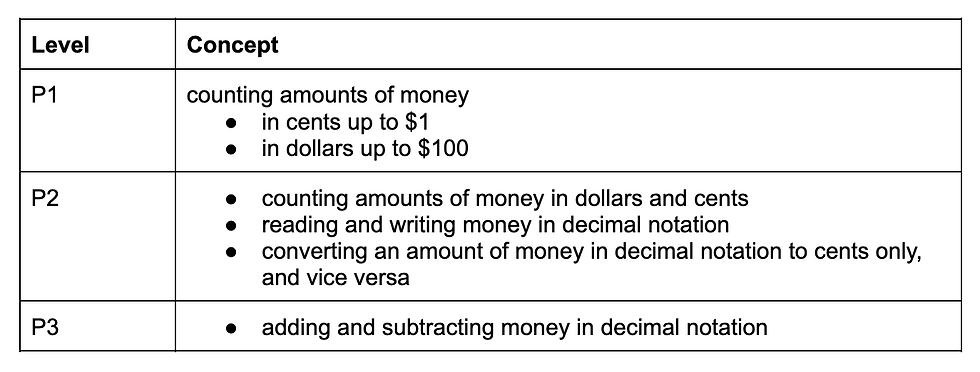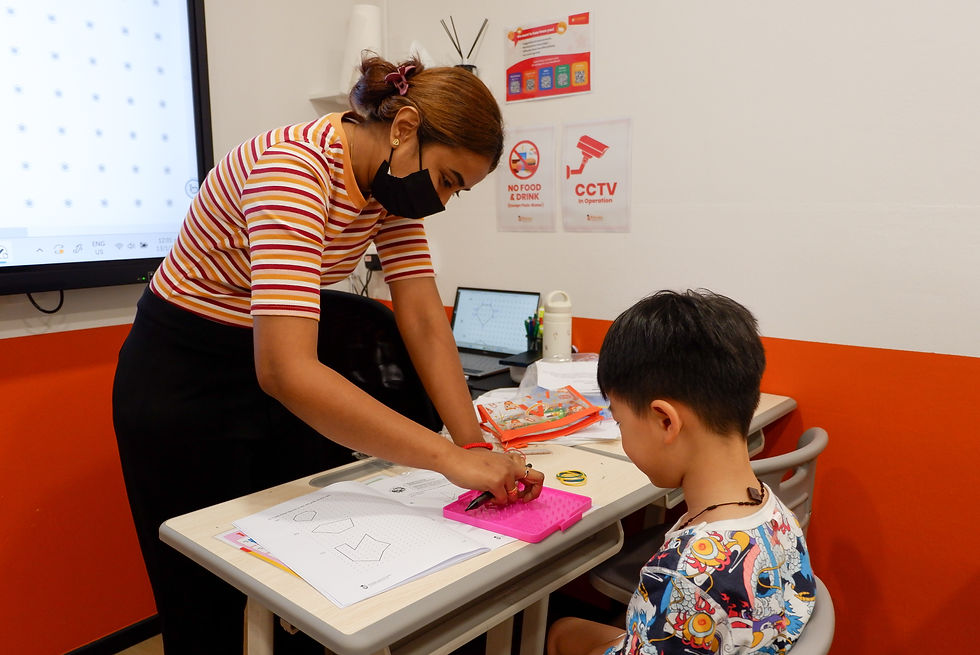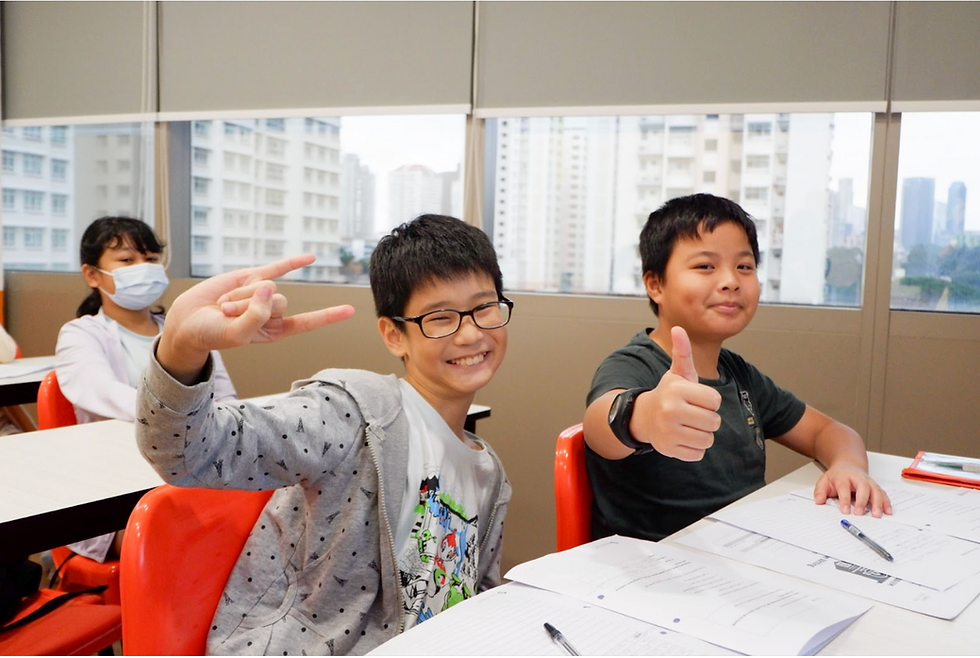Application of Classroom Mathematics to Real Life
- AGrader Learning Centre
- Sep 5, 2025
- 4 min read

It’s a question almost every parent and teacher has heard: “Why do we need to learn maths?” For many children, mathematics feels like endless worksheets, numbers, and formulas with little connection to their lives outside the classroom. The real challenge is not in teaching sums or equations—it’s in showing children the application of mathematics in real life.
The truth is, maths is everywhere. From managing pocket money and baking cookies to planning journeys and even scrolling through social media, math skills shape the way we make decisions, solve problems, and understand the world. Learning how to apply mathematics in real life doesn’t just help children pass exams—it gives them confidence in tackling everyday situations and builds the problem-solving skills they’ll need in the modern world.
Let’s explore how mathematics in real life transforms from classroom concepts to tools children can use every day.
Table of Contents:
Shopping Smarts: Maths in the Marketplace
One of the easiest ways to see the uses of mathematics in real life is at the supermarket. Children quickly learn that shopping isn’t just about grabbing what looks good—it’s about making smart choices with money.
Key Maths Skills: Addition, subtraction, money, estimation
Applications:
Adding up prices in the basket
Checking change at the cashier
Comparing offers like “Buy 2, Get 1 Free” versus 20% off
Working within a set budget
Real-Life Tip: Give your child a small budget and let them plan what to buy. It’s an engaging way to show the importance of mathematics in decision-making.

Shopping isn’t just about arithmetic; it’s about learning to make informed decisions—a skill that will serve children for life.

Cooking and Baking: Recipes Full of Maths
The kitchen is one of the richest environments for showing the practical applications of maths. Recipes are essentially mathematical instructions disguised as delicious treats.
Key Maths Skills: Measurement, fractions, multiplication, division
Applications:
Measuring ingredients in grams, litres, or millilitres
Scaling recipes up or down (doubling or halving)
Calculating cooking times
Converting between units, e.g., grams and kilograms
Real-Life Tip: Let your child measure out flour or calculate half a recipe. Without realising it, they’ll be learning mathematical concepts like fractions and multiplication.
Primary School Links:

Cooking and baking don’t just nurture a love of food—they help children understand how maths in everyday life creates order and balance in real-life situations.

Telling Time and Managing Schedules
Another vital skill where maths plays a huge role is time management. From getting ready for school to balancing homework, playtime, and rest, children rely on their sense of time every day.
Key Maths Skills: Time, addition, subtraction
Applications:
Reading analogue and digital clocks
Working out how long a task takes
Planning schedules and calculating travel times
Using the 24-hour clock for accuracy
Real-Life Tip: Provide your child with a daily planner or visual timetable. This not only builds maths skills but also develops independence and responsibility.
Primary School Links:

Mastering time helps children not only in school but also in building a lifelong ability to manage deadlines and commitments.

Financial Literacy: Money Matters
As children grow older, real life maths becomes essential in managing money. Concepts learned in primary school—percentages, multiplication, and division—translate directly into financial literacy.
Applications:
Calculating savings and expenses
Understanding discounts and promotions
Exploring compound interest in savings accounts
Planning budgets for pocket money or allowances
Real-Life Tip: Encourage your child to save part of their allowance and calculate how it grows over weeks or months. This introduces the power of compound interest early on.
From counting coins to understanding the golden ratio, the application of mathematics in real life is endless. Whether it’s budgeting for shopping, helping with cooking and baking, planning a timetable, or interpreting social media data, children use maths daily—often without realising it.
By highlighting the uses of mathematics in real life, parents and teachers can turn sceptical questions like “When will I ever use this?” into moments of discovery. With strong math skills, children gain the ability to make informed decisions, manage their time, and confidently tackle life problems in the modern world.

At AGrader, our Primary Math programme empowers students to master 90% of challenging problem sums quickly and confidently with proven techniques and heuristics. Aligned with the latest MOE syllabus and taught ahead of school, we focus on building strong conceptual understanding, critical thinking, and exam-answering skills that give your child the edge to ace the PSLE Maths exam. With real-exam practice papers, engaging lessons, and exclusive access to our EverLoop Improvement System, your child won’t just keep up—they’ll excel and develop a genuine love for mathematics. Enrol your child at AGrader today and set them on the path to PSLE success and beyond!
Join Our AGrader Community Today! (Free for all AGrader & Non-AGrader students)
Join our Telegram and WhatsApp channels to gain access to more study tips, free downloads, and much more for all subjects.
- WhatsApp channel: https://bit.ly/agwachannel
- Telegram channel: https://bit.ly/agtelchannel
Feel free to explore more related topics in this section








Comments